News

Jetstar’s Colombo Launch Marks Major Shift in Australia–Sri Lanka Travel
Jetstar is set to transform air connectivity between Australia and Sri Lanka with the launch of its first-ever direct low-cost service from Melbourne to Colombo, beginning 25 August 2026.
The move positions the carrier as the first Australian airline to operate direct flights on this route, offering more than 100,000 affordable seats annually and opening a new chapter in bilateral tourism and travel.
Jetstar CEO Stephanie Tully described the new route as a landmark moment for the airline’s international expansion. “Colombo is an incredible destination, and from August next year, we’re excited to make it easier and more affordable for Australians to explore the beauty of Sri Lanka,” she said.
Tully added that the route forms part of a broader period of growth, which includes new destinations, upgraded aircraft and an expanded flight network designed to “give travellers more choice and the ability to take off for less.”
Melbourne Airport CEO Lorie Argus welcomed the announcement as the airport and Jetstar celebrate 10 years of operations at Terminal 4. Argus noted that Sri Lanka has become one of the region’s fastest-growing destinations.
“More Jetstar flights mean more low fares and more opportunities for Victorians to explore the worldor reconnect with family across South Asia,” she said. Melbourne remains Jetstar’s largest hub.
The service will run three times a week using Jetstar’s Boeing 787 Dreamliner fleet, which is undergoing a significant upgrade early next year. The refurbishment includes more than doubling business-class capacity, installing in-flight Wi-Fi, and modernising cabin interiors to improve long-haul comfort.
A new lie-flat crew rest facility allowing flights up to 16 hours—will also extend Jetstar’s ability to operate longer international routes in future. The first upgraded aircraft is expected to arrive in Melbourne by March 2026.
To mark the launch, Jetstar opened ticket sales on Monday with a 24-hour Route Launch Sale, offering one-way fares as low as $315.
The introduction of the Colombo route coincides with one of Jetstar’s most active expansion phases in its 22-year history. Over the past two years alone, the carrier has announced 26 new routes and taken delivery of 13 new aircraft, nine of the routes being international in 2025.
Jetstar is also preparing for its biggest travel season on record, expecting nearly six million passengers across its international and domestic networks in December and January—including a record 1.7 million through Melbourne.
Under the published schedule, Melbourne flights will depart at 12:00 on Tuesdays, Thursdays and Saturdays, reaching Colombo at 17:50. Return flights will leave Colombo at 19:50, arriving in Melbourne at 10:00 the next day.

‘Rebuilding Sri Lanka’ Receives Rs. 1.89 Billion; Fast-Track Insurance Compensation Begins
The government’s “Rebuilding Sri Lanka” programme, launched to support recovery efforts following the devastation caused by Cyclone Ditwah, has secured Rs. 1,893 million in contributions from local donors, Sri Lankans living abroad, and several institutions, according to Dr. Harshana Suriyapperuma, Secretary to the Ministry of Finance, Planning and Economic Development.Dr. Suriyapperuma noted that a special meeting - convened by the Insurance Regulatory Commission of Sri Lanka and attended by the heads of all major insurance firms-was held to develop a unified compensation mechanism for cyclone-related losses.
During this discussion, insurers confirmed that they have already rolled out a fast-track compensation process for affected individuals and businesses. Payments for minor property damage have begun, ensuring quick financial relief to those impacted.
For major property losses, compensation will be finalized after necessary assessments are completed. However, representatives from insurance companies assured that partial payouts will be released immediately, even before full evaluations conclude, to help families and businesses begin recovery without delay.
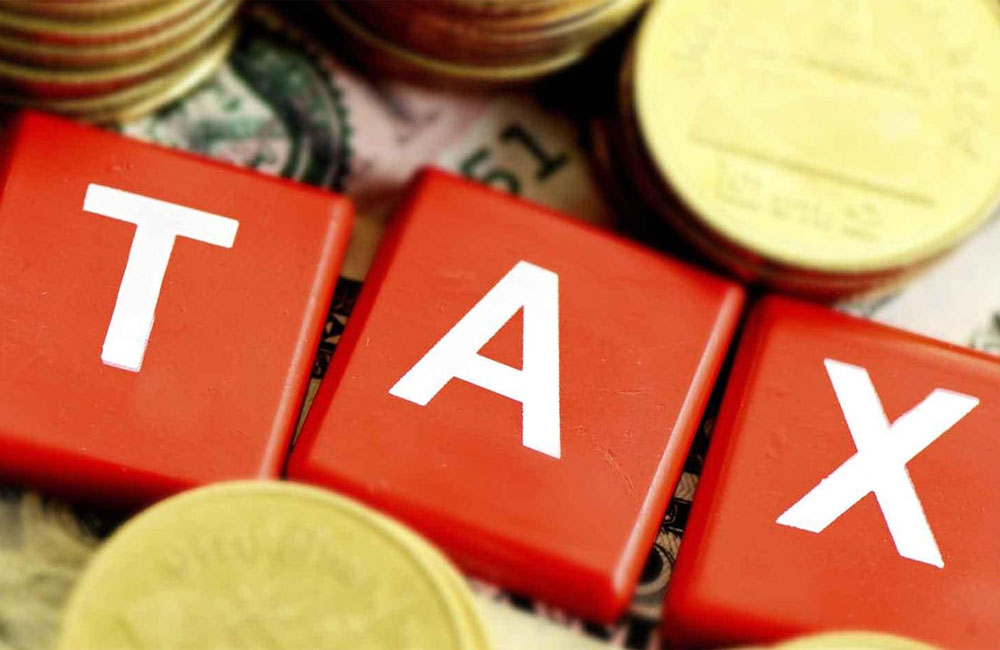
Tax Net Expansion Stalls as Disaster Delays Inland Revenue Drive
Sri Lanka’s effort to broaden its tax base has run into fresh obstacles as Inland Revenue Department (IRD) officials attempt to meet sharply increased revenue targets amid severe disruptions from the recent cyclone and flooding.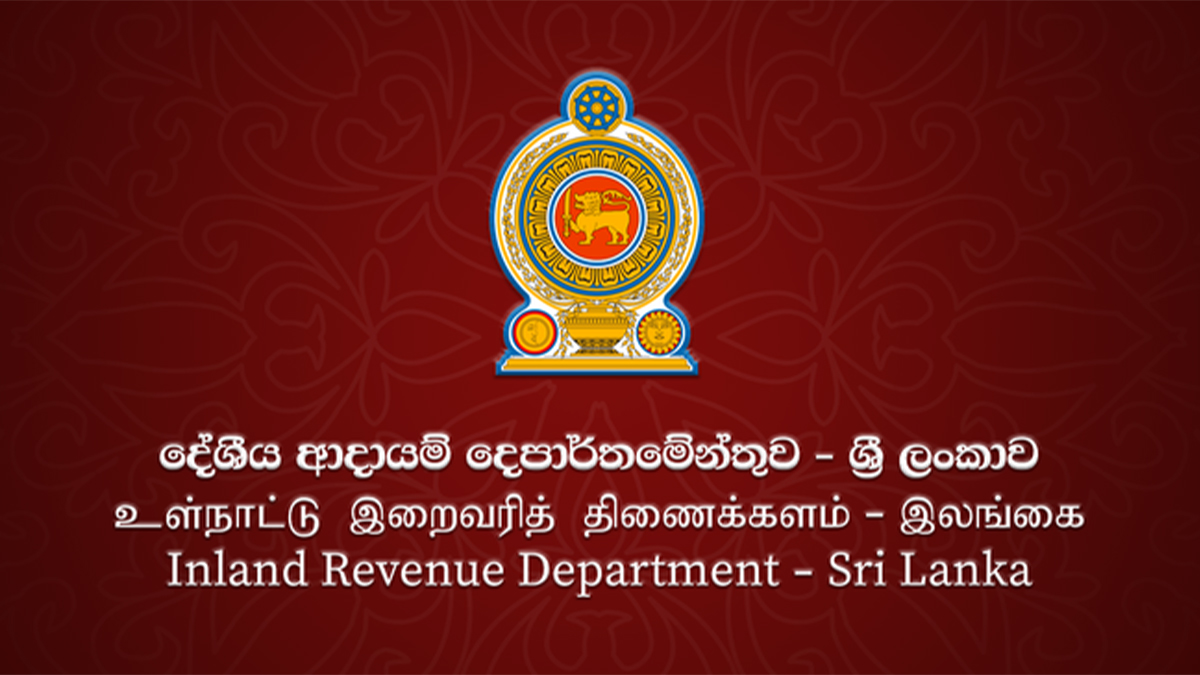 Inland Revenue Department (IRD)
Inland Revenue Department (IRD)
A senior-level discussion chaired by Deputy Minister Nishantha Jayaweera has now accelerated pressure on the IRD to simplify taxation processes and deliver a workable plan to achieve this year’s revenue targets.
The meeting included IRD Commissioner General Rukdevi Fernando and senior Finance Ministry officials, who examined the urgency of widening the tax net in light of reduced indirect-tax inflowsparticularly the steep drop in revenue from vehicle import duties.
Vehicle imports, traditionally a cornerstone of government revenue, have declined dramatically due to tightening foreign-exchange controls and policy uncertainty, leaving a widening gap in the tax portfolio.
According to the Ministry statement, the Deputy Minister directed the IRD to minimise taxpayer inconvenience, streamline the return-filing process, and strengthen awareness campaigns. Officials also discussed increasing voluntary compliance, which remains low due to bureaucratic complexity, distrust in the system, and limited digital uptake among small businesses.
However, the external environment is working against these ambitions. Cyclone-related flooding has severely affected businesses across multiple districts, damaging tax records, disrupting supply chains, and delaying the reopening of enterprises that contribute significantly to VAT and income-tax flows. In some regions, IRD field officers have flagged that taxpayers are unable to meet filing deadlines due to destroyed equipment and damaged premises.
The government’s revised revenue target for 2025—raised from Rs. 4,590 billion to Rs. 4,725 billion was set in expectation of stronger performance in income tax and goods-and-services levies.
The upward revision includes a 3.7% increase in the income-tax target to Rs. 1,210 billion and a 6.5% increase in levies on goods and services to Rs. 2,953 billion. Yet field data suggests that disaster-affected regions may not contribute at full capacity for months.
The IRD has long struggled to expand the tax base, with fewer than 10% of the workforce paying income tax and significant under-reporting among small and medium-sized enterprises. Officials say the cyclone has further pushed informal-sector workers into financial distress, reducing the likelihood of new registrations this year.
Analysts caution that expanding the tax net during a disaster recovery phase requires careful sequencing. Heavy-handed enforcement risks driving informal businesses deeper underground. Instead, tax officers recommend phased filing, targeted incentives, and digital-onboarding support to gradually integrate new taxpayers without harming economic recovery.
Despite these challenges, the IRD is expected to present its updated revenue-mobilisation plan within weeks. But insiders warn that meeting the newly revised targets already ambitious under normal conditions will depend heavily on reinstating trade flows, particularly vehicle imports, and ensuring disaster-hit businesses return to operation swiftly.

Sri Lanka Welcomes Over 50,000 Tourists in First 8 Days of December
Sri Lanka has recorded 50,222 tourist arrivals in the first eight days of December, according to the latest data released by the Sri Lanka Tourism Development Authority (SLTDA).
India continues to lead as the largest source of visitors, with 10,453 arrivals, making up 21% of the total. Russia followed with 5,420 visitors, while 4,822 tourists arrived from Germany. The United Kingdom contributed 3,823 travelers, and 2,627 French nationals visited during the same period.
With the addition of the early December arrivals, Sri Lanka’s total tourist count for 2025 has risen to 2,153,815. Of the overall arrivals, 485,249 are from India, while 195,565 visitors have come from the UK. Russia has contributed 164,013 tourists, Germany 136,081, China 124,298, and France 103,307, the SLTDA reported.

Sri Lanka’s Climbing Debt Risks Future Stability despite Restructuring Gains
Sri Lanka’s external debt position continues to tighten, raising questions about the country’s ability to navigate its recovery phase while meeting rising repayment obligations.
The Public Debt Management Office’s latest Quarterly Debt Bulletin shows that as of end-September 2025, Sri Lanka’s external debt stock reached USD 37.24 billion, marking a USD 100 million increase from the previous quarter.
Despite being locked out of global capital markets since the 2022 default, the government continues relying on multilateral financing from institutions such as the World Bank and Asian Development Bank both of which now account for more than 83% of multilateral exposures.
According to the bulletin, multilateral lenders represent 37% of the external portfolio, commercial creditors 34%, and bilateral partners 29%.
Sri Lanka managed to settle USD 1.36 billion in external obligations during the first half of 2025, completing 55% of the year’s total requirement. This leaves USD 1.09 billion in payments due before year-end.
Central Bank Governor Dr. Nandalal Weerasinghe has repeatedly cautioned that annual commitments will average USD 2.75 billion through 2027, before rising significantly from 2028 when pre-crisis obligations and new financing lines converge.
According to him, repayments after 2028 are projected to range between USD 3.2–3.5 billion, with some years expected to touch USD 4 billion.
This looming repayment spike underscores the urgency of Sri Lanka’s restructuring efforts. Substantial progress has been recorded since the 2022 default.
In June 2024, the government secured treatment agreements with the Official Creditor Committee and separately with the Export-Import Bank of China, followed by amendment arrangements to operationalise both deals. The restructuring of loans from China Development Bank was also completed in December 2024.
On the commercial front, an agreement in principle with International Sovereign Bondholders (ISBs) was reached in September 2024, with the bond exchange executed in December. Participation reached an impressive 98%, enabling nearly the entire defaulted commercial portfolio to be converted into new instruments.
Bilateral negotiations have also advanced steadily through 2025, with agreements finalised with Japan, India, France, Hungary, and the United Kingdom, bringing total restructuring completion to about 94%. More recently, SriLankan Airlines reached an agreement in principle with bondholders holding USD 175 million.
With these arrangements in place, the government has resumed regular servicing to creditors. But the underlying issue remains unchanged: while restructuring has bought Sri Lanka breathing space through 2027, the impending jump in repayment obligations from 2028 onward raises concerns about the country’s long-term debt sustainability.
Without stronger export growth, fiscal reforms, and renewed market access, experts warn that Sri Lanka risks drifting back toward repayment stress within the next decade.
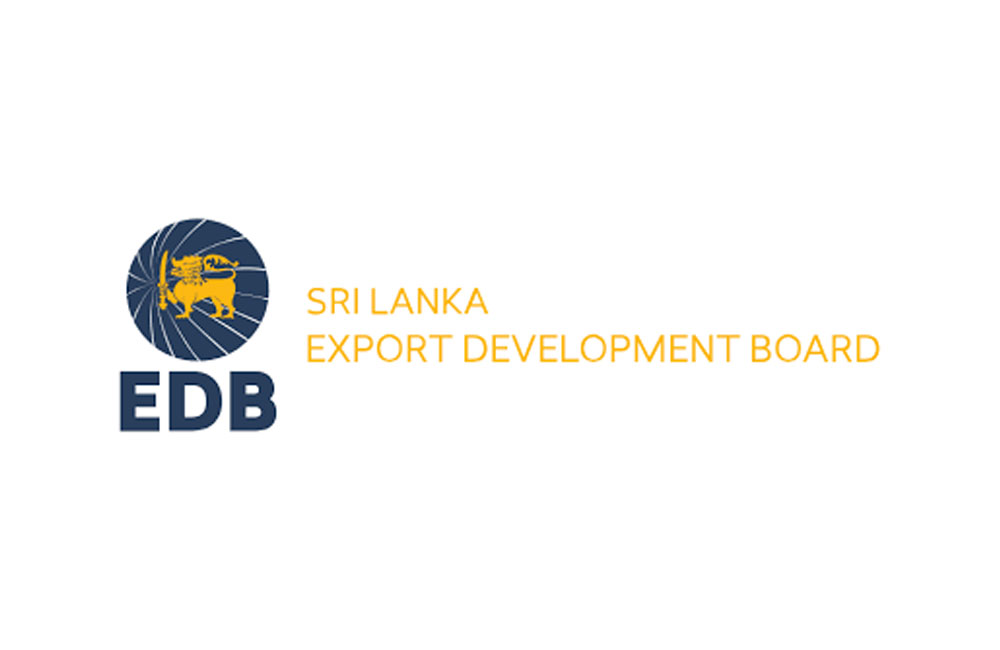
EDB Launches Rapid Recovery Plan for Weather-Hit Exporters
Sri Lanka’s export sector, heavily battered by weeks of severe weather, is receiving an urgent boost as the Export Development Board (EDB) rolls out a rapid relief and recovery programme to stabilise operations, restore supply chains and safeguard export earnings during a critical period for the economy.
At a high-level meeting held at the EDB, senior state officials and key exporters convened to assess the extent of the damage and identify immediate interventions.
The EDB confirmed that comprehensive on-ground damage assessments have already begun across the most heavily affected export-oriented enterprises. These findings will form the basis for targeted relief initiatives designed to stabilise production, revive supply lines and minimise revenue losses over the next several weeks.
Wijesinghe stressed that the Board is implementing strategic short-term interventions to prevent export disruptions from escalating. Key priorities include protecting production capacity, ensuring exporters can maintain shipment commitments, and supporting industries struggling with halted raw-material supplies. The EDB is also working to reactivate broken supply chains an essential step toward restoring normal export operations and maintaining Sri Lanka’s credibility in global markets.
Recognising widespread logistical delays caused by the extreme weather, the Board has initiated close coordination with customs, port authorities and logistics providers. These efforts aim to fast-track export-related clearance procedures and minimise congestion at key transit points.
A major focus of government support is now directed toward Small and Medium Enterprises (SMEs) a segment particularly vulnerable to weather-related shocks and infrastructure failures. Officials stressed that enabling SMEs to resume operations swiftly is vital not only to protect thousands of jobs but also to sustain broader export-sector contributions to national income.
During the discussion, participants highlighted the increasing frequency and severity of climate-related disruptions, warning that the export sector must adopt stronger resilience measures. Officials emphasised that environmental challenges are no longer isolated events but recurring threats requiring sustained and forward-looking strategies.
To address this, the EDB is encouraging exporters to integrate sustainability-driven practices, expand green technologies and adopt production models better suited to a climate-vulnerable landscape. Such approaches, the Board said, are essential to preserving long-term competitiveness and maintaining Sri Lanka’s reputation as a reliable trading partner.
The EDB reiterated that its rapid recovery programme aims not only to manage today’s crisis but also to strengthen the export sector’s ability to withstand future climate shocks ensuring growth, stability and resilience in a fast-changing global environment.

Sri Lanka Faces Disaster Debt Trap as UNDP Seeks Global Aid
The UNDP has raised the alarm over Sri Lanka’s worsening post-cyclone recovery, warning that the country is confronting a dual crisis of massive disaster damage and severe debt vulnerability.
The agency has urged development partners to extend concessional financing and non-debt instruments, arguing that Sri Lanka lacks the fiscal space to rebuild responsibly after Cyclone Ditwah, which inundated 20% of the country and triggered 1,200 landslides.
UNDP Resident Representative Azusa Kubota said the disaster hit at a moment when Sri Lanka’s economy was only beginning to stabilise. “After one of its worst economic crises, Sri Lanka cannot absorb more debt to fund recovery,” she said, stressing that donor support is essential to prevent the country from “falling off the debt cliff.”
UNDP’s geospatial mapping shows a massive scale of exposure: 2.3 million people, including 522,000 children and 263,000 older persons, were affected by floods and landslides.
Divisional Secretariats in Puttalam, Kilinochchi, Mullaitivu, Nuwara Eliya, Badulla, and Kegalle reflect the most severe combined impacts, where fragile governance systems and pre-existing poverty amplify recovery challenges.
The disaster’s infrastructure toll is enormous. Nearly 720,000 buildings from hospitals to schools were exposed to water. Colombo, Gampaha, and Polonnaruwa districts recorded some of the highest totals, with Ja-Ela alone reporting more than 44,000 exposed structures.
The transport network has been heavily disrupted, with 16,000 km of roads, 480 bridges, and 278 km of railway affected, cutting communities off from critical services.
Debris removal has emerged as one of the biggest barriers to recovery. More than 240,000 tons of non-construction waste and 60,000 cubic metres of construction debris have been recorded, with Colombo facing the largest volumes. Costs continue to rise as verification progresses.
Agricultural exposure is equally damaging. Over 530,000 hectares of paddy land were flooded—endangering national food security. In several districts, 20–30% of households lack even a week’s worth of dry food, signalling the depth of the humanitarian strain.
UNDP’s early recovery plan calls for urgent action: restoring essential services, supporting MSMEs, rebuilding community infrastructure, and replacing vital documentation lost in the disaster. The agency also emphasised strengthening local authorities who must manage relief registries and community outreach.
UNDP Crisis Bureau official Devanand Ramiah stated that the cyclone demonstrated how multiple risks can converge rapidly, making global support indispensable.
With Sri Lanka still negotiating debt sustainability in the aftermath of its economic collapse, UNDP’s appeal underscores a grim reality: without external concessional support, rebuilding will push the nation deeper into the debt trap it is struggling to escape.

Heavy Audit Load Tests Governance, Capacity and Economic Stability
The National Audit Office’s (NAO) audit plan for 2026 has drawn attention not only for its volume 3,508 audits, the highest in recent years but for its implications on the broader economy, public-sector efficiency, and the future of good governance in Sri Lanka.
The breakdown of next year’s workload 3,484 financial audits, 12 special audits, 11 performance audits, and one environmental audit signals an expanded mandate aimed at tightening accountability within state institutions. But, it also exposes a capacity strain that may undermine the effectiveness of audit oversight unless addressed urgently.
A central concern emerged during recent deliberations of the Committee on Public Finance (COPF): whether the NAO is adequately staffed to handle this surge. The assignment of auditing Samurdhi Community-Based Banks and Samurdhi Bank Societies from 2026 adds significant weight. This welfare-linked financial network affects millions of low-income families, making rigorous auditing essential to prevent leakages, fraud, and political interference.
Officials from the Audit Office admitted the need for an additional 10–15 percent workforce, noting that pilot audits are currently being carried out through regional offices to determine actual staffing needs. COPF agreed that outsourcing may be necessary, but insisted that the Auditor General must first present concrete findings by February 2026.
Beyond administrative challenges, experts warn that the audit findings of 2026 will have direct economic consequences. Sri Lanka’s fiscal recovery hinges on improving state-sector efficiency, meeting IMF commitments, and restoring credibility in public spending. Any weaknesses uncovered in welfare schemes, state-owned enterprises, or regulatory agencies could influence budget allocations, debt management strategies, and investor confidence.
Discussions at COPF also extended to regulations under the National Medicines Regulatory Authority Act, reiterating the need for transparency in the pharmaceutical sector an area where delays, opaque licensing systems, and pricing concerns have historically affected public health budgets. Strengthened audits could help identify systemic inefficiencies and policy gaps.
The committee also reviewed the Final Report on the 2026 Appropriation Bill, which outlines spending priorities for next year. NAO’s audits will play a central role in determining whether ministries comply with budgetary discipline and whether public funds deliver expected outcomes.
Good governance advocates argue that the NAO’s expanding workload reflects Parliament’s renewed interest in oversight, but caution that an audit is only as effective as its follow-up. Without timely corrective action by ministries, audit recommendations often remain unimplemented, weakening accountability.
As Sri Lanka moves into a year of intensified scrutiny, the effectiveness of the National Audit Office will influence not only public-sector governance but also the country’s economic stability. The coming year will test whether audit capacity can keep pace with the country’s growing oversight needs.
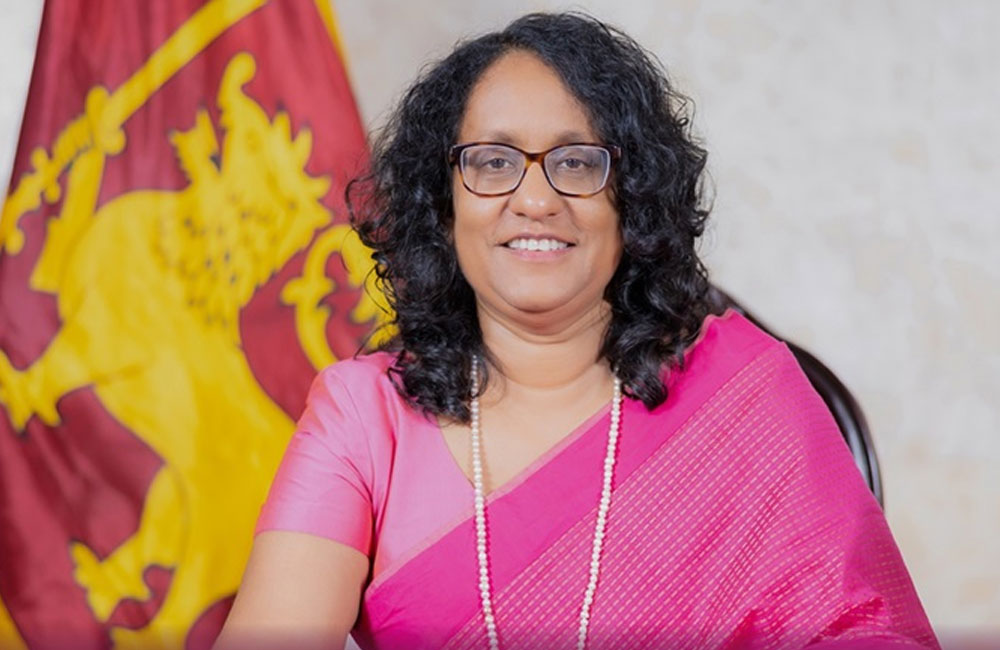
PM Vows Strict Ban on Unauthorized Constructions in Colombo to Curb Flood Risks
Prime Minister Dr. Harini Amarasuriya has declared that unauthorized constructions in the Colombo District will not receive approval under any circumstance, warning that such unplanned development has intensified the district’s vulnerability to flooding. She stressed that no project -particularly those disguised as development initiatives -will be permitted if it poses a threat to public safety.
Speaking to the media after the Colombo District Disaster Management Committee meeting held on December 9 at the Colombo District Secretariat, the Prime Minister highlighted that years of ad-hoc construction, regulatory neglect, and politically driven decisions have placed both the district and its residents in a dangerous position.
While recent cyclone-related destruction was far more severe in other districts, she noted that Colombo still faces significant future risks. To address this, relevant state agencies are now working together on targeted interventions to reduce the district’s susceptibility to flooding.
Dr. Amarasuriya emphasized that recurring floods cannot be allowed to become a routine hardship for the people of Colombo. A coordinated district-wide plan for flood prevention is being developed, with implementation measures expected to begin soon.
She further confirmed that discussions are underway to introduce lasting and sustainable solutions for families currently living in high-risk zones across the district.
The meeting was attended by Deputy Minister of Urban Development Eranga Gunasekara, Deputy Minister of Mass Media Kaushalya Ariyaratne, and Colombo District Members of Parliament Aruna Panagoda and Chandana Suriyarachchi.

Moody’s Warns Sri Lanka Faces Region’s Worst Climate Credit Shock
Moody’s Investors Service has issued a stark warning that Sri Lanka now faces the most severe credit consequences from the wave of climate-related disasters that have struck South and Southeast Asia in recent weeks.
In its 5 December statement, the rating agency highlighted that the region has endured a series of tropical cyclones combined with unusually intense monsoon rains since mid-November, leading to widespread flooding, landslides and substantial loss of life.
According to Moody’s, while several countries across the region share exposure to physical climate risks, Sri Lanka stands out due to its significantly weaker fiscal buffers.
The agency groups Sri Lanka, Indonesia, the Philippines and Vietnam among the countries with high sensitivity to climate-related shocks, but stresses that Sri Lanka’s constrained public finances give it far less room to absorb economic losses or invest in adaptation.
This amplifies the credit impact at a time when the country is still attempting to stabilise after its historic sovereign default.
Moody’s also linked the scale of climate risk exposure to the strength of public institutions. Although recent reforms have somewhat improved Sri Lanka’s policy framework, it still carries a governance issuer profile score of 4 the same as Vietnam indicating substantial vulnerability to governance-related credit pressures.
In contrast, peers with stronger governance and fiscal capacity are expected to face more limited credit fallout from the same disasters.
The agency also noted that the severity of flooding across the region exposes deeper structural weaknesses, including the widespread absence of natural catastrophe insurance. As climate-related events grow more frequent and more destructive, the credit implications for governments are expected to intensify unless resilience investment increases.
Last October, Moody’s assessed that Sri Lanka’s macroeconomic stabilisation was progressing broadly as expected, with the current account projected to remain in surplus through 2025 due to tourism and remittances.
However, the country’s narrow tax base, dependence on external financing, and extremely low debt affordability remained major risks, particularly if global financial conditions tightened.
Moody’s said that maintaining reform momentum under the IMF-supported programme is essential for improving the island’s credit profile. Any rollback of reforms or weakening of external buffers, it warned, could quickly reverse recent gains.
Following Cyclone Ditwah, Sri Lanka has requested around US$200 million under the IMF’s Rapid Financing Instrument to help address emergency fiscal needs.
The Fifth Review of the IMF’s Extended Fund Facility originally scheduled to conclude on 15 December and unlock a US$347 million disbursement has now been deferred to early 2026 due to the new fiscal pressures created by the disaster.
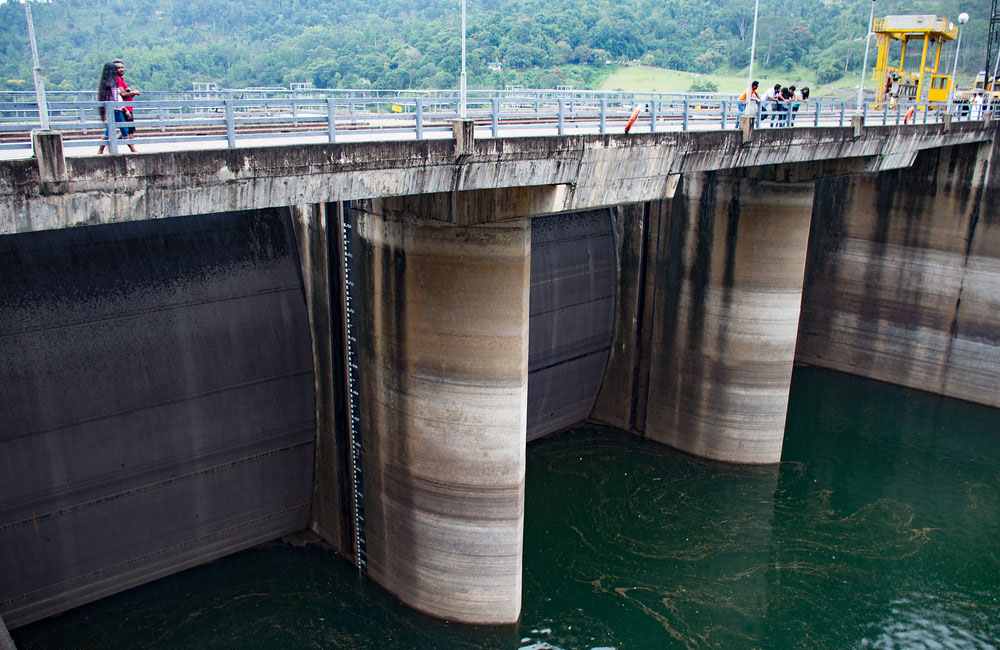
Heavy Vehicles Prohibited on Kotmale Dam Road; MDA Dismisses Rumors on Sluice Gate Operations
The Mahaweli Development Authority (MDA) has announced that heavy vehicles will no longer be permitted to use the roadway over the Kotmale Dam, citing safety and structural considerations.Nuwara Eliya District MP Manjula Suraweera Arachchi revealed that the MDA is also preparing to provide 55 hectares of land under its jurisdiction for resettlement purposes, particularly for communities affected by ongoing weather-related risks.
Addressing recent speculation, MDA Director General H.M.J. Herath firmly rejected social media rumors claiming the dam’s sluice gates had been opened without necessity. He stressed that engineers make such decisions strictly based on scientific data and hydrological analysis.
Herath made these remarks following an inspection of the dam’s sluice system and subsequent discussions held at the MDA office in Kotmale. He further noted that a new public alert mechanism will soon replace the current method used to inform residents ahead of future sluice gate operations.
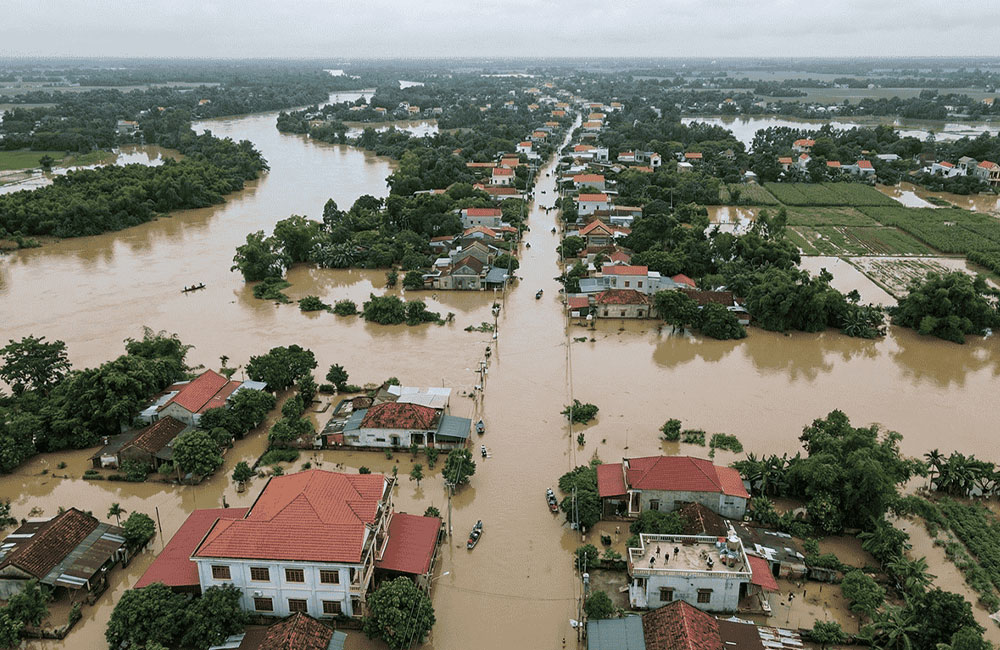
Sri Lanka & the Global Climate Emergency: The Lessons of Cyclone Ditwah
Tropical Cyclone Ditwah, which made landfall in Sri Lanka on 28 November 2025, is considered the country’s worst natural disaster since the deadly 2004 tsunami. It intensified the northeast monsoon, bringing torrential rainfall, massive flooding, and 215 severe landslides across seven districts.
The cyclone left a trail of destruction, killing nearly 500 people, displacing over a million, destroying homes, roads, and railway lines, and disabling critical infrastructure including 4,000 transmission towers. Total economic losses are estimated at USD 6–7 billion—exceeding the country’s foreign reserves.
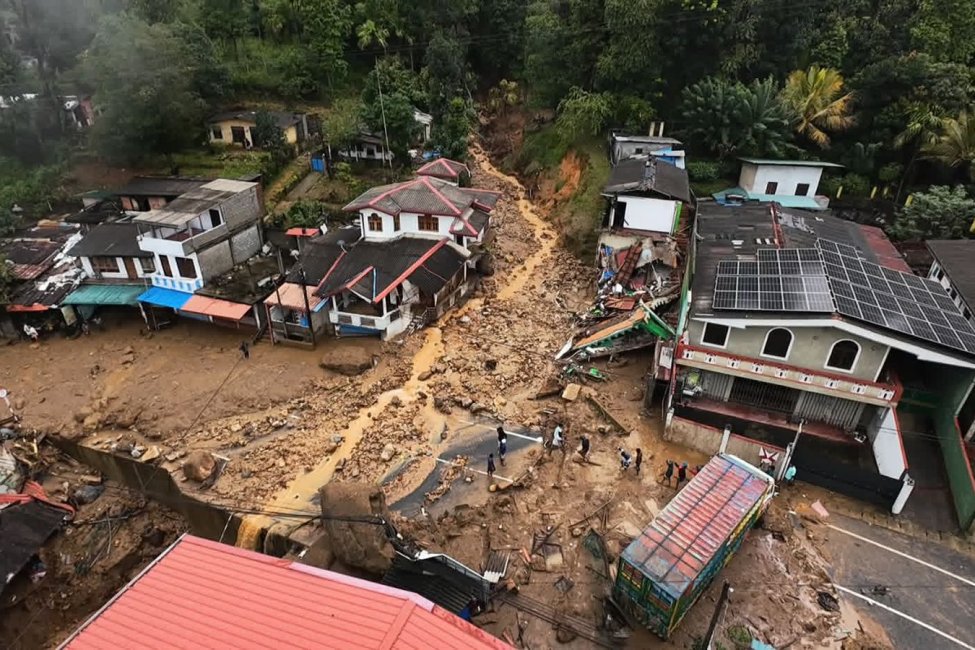
The Sri Lankan Armed Forces have led the relief efforts, aided by international partners including India and Pakistan. A Sri Lanka Air Force helicopter crashed in Wennappuwa, killing the pilot and injuring four others, while five Sri Lanka Navy personnel died in Chundikkulam in the north while widening waterways to mitigate flooding.
The bravery and sacrifice of the Sri Lankan Armed Forces during this disaster—as in past disasters—continue to be held in high esteem by grateful Sri Lankans.
The government, however, is facing intense criticism for its handling of Cyclone Ditwah, including failure to heed early warnings available since November 12, a slow and poorly coordinated response, and inadequate communication with the public
Systemic issues—underinvestment in disaster management, failure to activate protocols, bureaucratic neglect, and a lack of coordination among state institutions—are also blamed for avoidable deaths and destruction.
The causes of climate disasters such as Cyclone Ditwah go far beyond disaster preparedness. Faulty policymaking, mismanagement, and decades of unregulated economic development have eroded the island’s natural defenses. As climate scientist Dr. Thasun Amarasinghe notes:
“Sri Lankan wetlands—the nation’s most effective natural flood-control mechanism—have been bulldozed, filled, encroached upon, and sold.
Many of these developments were approved despite warnings from environmental scientists, hydrologists, and even state institutions.”
Sri Lanka’s current vulnerabilities also stem from historical deforestation and plantation agriculture associated with colonial-era export development. Forest cover declined from 82% in 1881 to 70% in 1900, and to 54–50% by 1948, when British rule ended. It fell further to 44% in 1954 and to 16.5% by 2019.
Deforestation contributes an estimated 10–12% of global greenhouse gas emissions. Beyond removing a vital carbon sink, it damages water resources, increases runoff and erosion, and heightens flood and landslide risk. Soil-depleting monocrop agriculture further undermines traditional multi-crop systems that regenerate soil fertility, organic matter, and biodiversity.
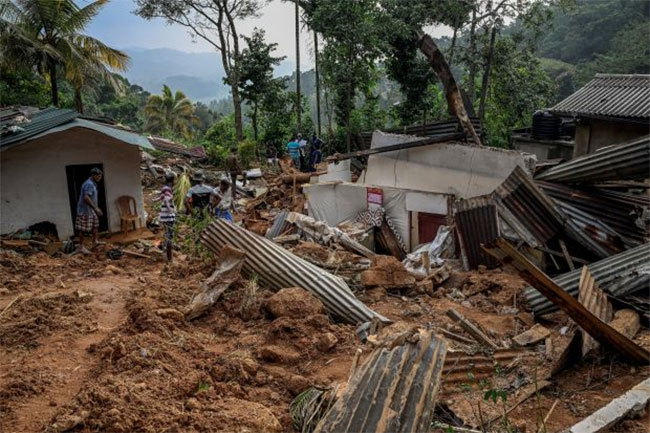
In Sri Lanka’s Central Highlands, which were battered by Cyclone Ditwah, deforestation and unregulated construction had destabilized mountain slopes. Although high-risk zones prone to floods and landslides had long been identified, residents were not relocated, and construction and urbanization continued unchecked.
Sri Lanka was the first country in Asia to adopt neoliberal economic policies. With the “Open Economy” reforms of 1977, a capitalist ideology equating human well-being with quantitative growth and material consumption became widespread. Development efforts were rushed, poorly supervised, and frequently approved without proper environmental assessment.
Privatization and corporate deregulation weakened state oversight. The recent economic crisis and shrinking budgets further eroded environmental and social protections, including the maintenance of drainage networks, reservoirs, and early-warning systems. These forces have converged to make Sri Lanka a victim of a dual climate threat: gradual environmental collapse and sudden-onset disasters.
Sri Lanka: A Climate Victim
Sri Lanka’s carbon emissions remain relatively small but are rising. The impact of climate change on the island, however, is immense. Annual mean air temperature has increased significantly in recent decades (by 0.016 °C annually between 1961 and 1990). Sea-level rise has caused severe coastal erosion—0.30–0.35 meters per year—affecting nearly 55% of the shoreline. The 2004 tsunami demonstrated the extreme vulnerability of low-lying coastal plains to rising seas.
The Cyclone Ditwah catastrophe was neither wholly new nor surprising. In 2015, the Geneva-based Internal Displacement Monitoring Centre (IDMC) identified Sri Lanka as the South Asian country with the highest relative risk of disaster-related displacement: “For every million inhabitants, 15,000 are at risk of being displaced every year.”
IDMC also noted that in 2017 the country experienced seven disaster events—mainly floods and landslides—resulting in 135,000 new displacements and that Sri Lanka “is also at risk for slow-onset impacts such as soil degradation, saltwater intrusion, water scarcity, and crop failure”.
Sri Lanka ranked sixth among countries most affected by extreme weather events in 2018 (Germanwatch) and second in 2019 (Global Climate Risk Index). Given these warnings, Cyclone Ditwah should not have been a surprise. Scientists have repeatedly cautioned that warmer oceans fuel stronger cyclones and warmer air hold more moisture, leading to extreme rainfall.
As the Ceylon Today editorial of December 1, 2025 also observed: “…our monsoons are no longer predictable. Cyclones form faster, hit harder, and linger longer. Rainfall becomes erratic, intense, and destructive. This is not a coincidence; it is a pattern.”
Without urgent action, even more extreme weather events will threaten Sri Lanka’s habitability and physical survival.
A Global Crisis
Extreme weather events—droughts, wildfires, cyclones, and floods—are becoming the global norm. Up to 1.2 billion people could become “climate refugees” by 2050. Global warming is disrupting weather patterns, destabilizing ecosystems, and posing severe risks to life on Earth. Indonesia and Thailand were struck by the rare and devastating Tropical Cyclone Senyar in late November 2025, occurring simultaneously with Cyclone Ditwah’s landfall in Sri Lanka.
More than 75% of global greenhouse gas emissions—and nearly 90% of carbon emissions—come from burning coal, oil, and gas, which supply about 80% of the world’s energy. Countries in the Global South, like Sri Lanka, which contribute least to greenhouse gas emissions, are among the most vulnerable to climate devastation.
Yet wealthy nations and multilateral institutions, including the World Bank, continue to subsidize fossil fuel exploration and production. Global climate policymaking—including COP 30 in Belém, Brazil, in 2025—has been criticized as ineffectual and dominated by fossil fuel interests.
If the climate is not stabilized, long-term planetary forces beyond human control may be unleashed. Technology and markets are not inherently the problem; rather, the issue lies in the intentions guiding them. The techno-market worldview, which promotes the belief that well-being increases through limitless growth and consumption, has contributed to severe economic inequality and more frequent extreme weather events.
The climate crisis, in turn, reflects a profound mismatch between the exponential expansion of a profit-driven global economy and the far slower evolution of human consciousness needed to uphold morality, compassion, generosity and wisdom.
Sri Lanka’s 2025–26 budget, adopted on November 14, 2025—just as Cyclone Ditwah loomed—promised subsidized land and electricity for companies establishing AI data centers in the country. President Anura Kumara Dissanayake told Parliament: “Don’t come questioning us on why we are giving land this cheap; we have to make these sacrifices.”
Yet Sri Lanka is a highly water-stressed nation, and a growing body of international research shows that AI data centers consume massive amounts of water and electricity, contributing significantly to greenhouse gas emissions.
The failure of the narrow, competitive techno-market approach underscores the need for an ecological and collective framework capable of addressing the deeper roots of this existential crisis—both for Sri Lanka and the world.
 Mapping the Initial Impact of Cyclone Ditwah in Sri Lanka Source:Geosmart/Vantor
Mapping the Initial Impact of Cyclone Ditwah in Sri Lanka Source:Geosmart/Vantor
Ecological and Human Protection
Ecological consciousness demands recognition that humanity is part of the Earth, not separate from it. Policies to address climate change must be grounded in this understanding, rather than in worldviews that prize infinite growth and technological dominance.
Nature has primacy over human-created systems: the natural world does not depend on humanity, while humanity cannot survive without soil, water, air, sunlight, and the Earth’s essential life-support systems.
Although a climate victim today, Sri Lanka is also home to an ancient ecological civilization dating back to the arrival of the Buddhist monk Mahinda Thera in the 3rd century BCE. Upon meeting King Devanampiyatissa, who was out hunting in Mihintale, Mahinda Thera delivered one of the earliest recorded teachings on ecological interdependence and the duty of rulers to protect nature:
“O great King, the birds of the air and the beasts of the forest have as much right to live and move about in any part of this land as thou. The land belongs to the people and all living beings; thou art only its guardian.”
A stone inscription at Mihintale records that the king forbade the killing of animals and the destruction of trees. The Mihintale Wildlife Sanctuary is believed to be the world’s first.
Sri Lanka’s ancient dry-zone irrigation system—maintained over more than a millennium—stands as a marvel of sustainable development. Its network of interconnected reservoirs, canals, and sluices captured monsoon waters, irrigated fields, controlled floods, and even served as a defensive barrier.
Floods occurred, but historical records show no disasters comparable in scale, severity, or frequency to those of today. Ancient rulers, including the legendary reservoir-builder King Parākramabāhu, and generations of rice farmers managed their environment with remarkable discipline and ecological wisdom.
The primacy of nature became especially evident when widespread power outages and the collapse of communication networks during Cyclone Ditwah forced people to rely on one another for survival. The disaster ignited spontaneous acts of compassion and solidarity across all communities—men and women, rich and poor, Buddhists, Christians, Muslims, and Hindus.
Local and international efforts mobilized to rescue, shelter, feed, and emotionally support those affected. These actions demonstrated a profound human instinct for care and cooperation, often filling vacuums left by formal emergency systems.
Yet spontaneous solidarity alone is insufficient. Sri Lanka urgently needs policies on sustainable development, environmental protection, and climate resilience. These include strict, science-based regulation of construction; protection of forests and wetlands; proper maintenance of reservoirs; and climate-resilient infrastructure.
Schools should teach environmental literacy that builds unity and solidarity, rather than controversial and divisive curriculum changes like the planned removal of history and introduction of contested modules on gender and sexuality.
If the IMF and international creditors—especially BlackRock, Sri Lanka’s largest sovereign bondholder, valued at USD 13 trillion—are genuinely concerned about the country’s suffering, could they not cancel at least some of Sri Lanka’s sovereign debt and support its rebuilding efforts?
Addressing the climate emergency and the broader existential crisis facing Sri Lanka and the world ultimately requires an evolution in human consciousness guided by morality, compassion, generosity and wisdom.

Dr Asoka Bandarage is the author of Colonialism in Sri Lanka: The Political Economy of the Kandyan Highlands, 1833-1886 (Mouton) Women, Population and Global Crisis: A Politico-Economic Analysis (Zed Books), The Separatist Conflict in Sri Lanka: Terrorism, Ethnicity, Political Economy, ( Routledge), Sustainability and Well-Being: The Middle Path to Environment, Society and the Economy (Palgrave MacMillan) Crisis in Sri Lanka and the World: Colonial and Neoliberal Origins, Ecological and Collective Alternatives (De Gruyter) and numerous other publications. She serves on the Advisory Boards of the Interfaith Moral Action on Climate and Critical Asian Studies.
IPS UN Bureau
© Inter Press Service (20251209073425) — All Rights Reserved.
(Source -https://www.globalissues.org/)
Page 57 of 681